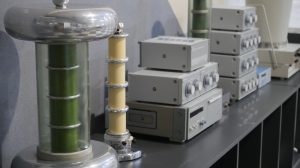Emerging Europe’s start-up scene is thriving: new money and new ideas are coming onto the market all the time. To keep you up to date with the latest investments, innovations, movers and shakers, every week Emerging Europe brings you a round-up of the region’s start-up news.
Sunly: Estonian-founded renewable energy firm raises 200 million euros
Independent power producer Sunly has raised around 200 million euros to build and expand its renewable energy portfolio in the Baltics and Poland.
The capital raise includes investments from Sunly’s existing shareholders and welcomes Mirova, an affiliate of Natixis Investment Managers and French leading asset manager dedicated to sustainable investing, which is becoming the largest investor.
Sunly will use the capital according to a two-year investment plan that foresees further development of its 17.9 GW pipeline of solar and wind power in the Baltic States and Poland.
“This is great news for our community of partners and employees. We will advance and build solar and wind farms, which helps the current energy crises we are all experiencing,” says Priit Lepasepp, CEO and co-founder of Sunly.
“Sunly’s projects will contribute to lower power prices and increased energy security.”
Raphaël Lance, director of Mirova’s energy transition infrastructure funds, adds: “We are very pleased with our investment in Sunly which is in line with our strategy to support the growth of pan European developers committed to energy transition and help them become large independent renewable power producer.
“We share the same values with the Sunly shareholders and management team to grow wind and solar plants as fast as possible, developing projects that are respectful towards nature, well integrated with the local communities and socially accepted. We are both willing to expand while setting the highest standards in terms of sustainability and are convinced of the energy transition potential of the Baltics and Poland.”
Demoboost: Polish start-up raises 1.7 million euros to transform product demos for the SaaS industry
Demoboost, a Warsaw-based start-up that helps software companies deliver superior demo experiences to close more deals faster, has raised 1.7 million euros in a pre-seed round to further accelerate product development and the global expansion of the platform. The round was led by btov Partners with support from Movens Capital and noted European angel investors.
Demos are an effective tool to inform prospects and help turn them into customers, and ‘Book a Demo’ is the most common call to action on SaaS websites. Yet the demo creation process has become a major bottleneck in the sales process for vendors. The growing demand from customers has left presales teams – the people who create and deliver demos – extremely stretched. It can take up to five days for a face-to-face conversation to take place after requesting a demo and another two to three weeks to actually see the product demo.
Demoboost addresses those issues by empowering companies to automate demos. It provides a demo library from which presales can create, customise and leverage demos for a range of teams and use cases. The Demoboost platform enables sales, marketing, customer success teams, and even channel partners, to easily tailor granular details, reducing waiting times for demos and facilitating better lead-generation, deal conversion and product adoption.
“Our team knows the challenges of buying and selling software firsthand. We sold together as a vendor-partner team for Salesforce for years before starting Demoboost,” says Pawel Jaszczurowski, the start-up’s co-founder and CEO.
“We have worked on and closed dozens of deals, experiencing the vendor partner-customer dynamic up close. Demoboost addresses the disconnect between the growing expectations of buyers and the capacity of vendors to keep up. Our answer is to help companies supercharge demos.”

Open Health Labs brings European start-ups to Latvia to foster innovations in the public health sector
Seven European start-ups have been selected to co-create innovative and patient-centric solutions with four Latvian medical institutions under the country’s first public health innovation pilot programme, Open Health Labs.
The programme is part of a broader innovation promotion strategy meant to facilitate open innovations in the public health sector.
“It is important that medical institutions gradually become more digitalized and therefore also provide patients with higher quality services,” says Āris Kasparāns, director of the Latvian National Health Service.
“The programme and challenges set forward for the start-ups were defined with an aim to introduce the latest technologies in Latvian health institutions, thus, providing patients with a world-class experience.”
The new program attracted almost 80 start-up applications from different parts of the world. After a thorough evaluation, the best seven are now part of the programme.
Pauls Stradins Clinical University Hospital has been paired with UK-based start-up BuzzStreets to develop a visitor and employee-friendly navigation system. The same institution has also put forward another challenge to tackle. Together with Portuguese start-up Bloq.it they are now working on a convenient system for depositing, storing and retrieving patients’ personal belongings during their hospital stay.
Riga Psychiatric and Narcology Centre is currently developing a digital platform for online inpatient consultations with Latvian start-up Medon.
Jelgava City Hospital has been paired with Dutch start-up Inicare to create a tool for continuous monitoring of the health conditions of inpatients. However, on a digital tool for monitoring patients’ movements and location, they are working with Israel-based start-up IntraPosition.
Meanwhile, Daugavpils Regional Hospital is working with UK start-up Resilio and Luxembourg-based startup Dynaccurate to create a digital platform for automated recording, supervision, and analysis of prescribed and applied therapy and monitoring of the condition of the patients undergoing oncology treatment.
Katana: Estonian start-up closes 35 million US dollars Series B to scale manufacturing ecosystem for SMBs
Katana, an industry-leading manufacturing ERP software has closed a 35 million US dollars Series B round, bringing the total funding to date to 51 million Us dollars.
Funds will be used to scale up Katana’s features for small to medium-sized manufacturers, allowing them to manage D2C and B2B sales in an intuitive, industry-leading software solution.
The investment round is led by global VC firm Northzone, an early investor in Spotify, Personio, and Trustpilot, with the participation of impact-focused growth investor Lightrock, alongside previous investors Atomico and 42CAP.
Katana continues to be supported by its angel investors, including Sergei Anikin (former CTO at Pipedrive, also serving as Katana’s Chairman of the Supervisory Board), Sten Tamkivi (co-founder of NFTPort and former Skype executive), and Ott Kaukver (CTO of Checkout and former CTO of Twilio).
Founded in 2017, Katana offers everything companies need to keep manufacturing, uniting all the processes, tools, and software manufacturers require with an intuitive and easy-to-use ERP.
Global from day one, Katana’s portfolio of over 1,300 companies ranges from hobby makers to multi-million dollar manufacturing businesses.
Since closing Series A in 2021, Katana launched an open API, app marketplace, and over 60 integrations and feature releases, laying the foundation for the next stage of its evolution. With Series B funding secured, Katana says it will continue to develop its plug-and-play platform approach by introducing more advanced accounting integrations and more world-class software services to an increasingly extensive app marketplace.
“I am thrilled to welcome investors to our board who share our team’s vision,” says Kristjan Vilosius, Katana’s founder and CEO.
“We’re equally grateful for the continued support of our previous investors and angel investors. This investment helps us continue to develop a manufacturing ERP platform customers love, as well as offer support to an under-served market which is having its own incredible renaissance.”
Unlike many news and information platforms, Emerging Europe is free to read, and always will be. There is no paywall here. We are independent, not affiliated with nor representing any political party or business organisation. We want the very best for emerging Europe, nothing more, nothing less. Your support will help us continue to spread the word about this amazing region.
You can contribute here. Thank you.







Add Comment